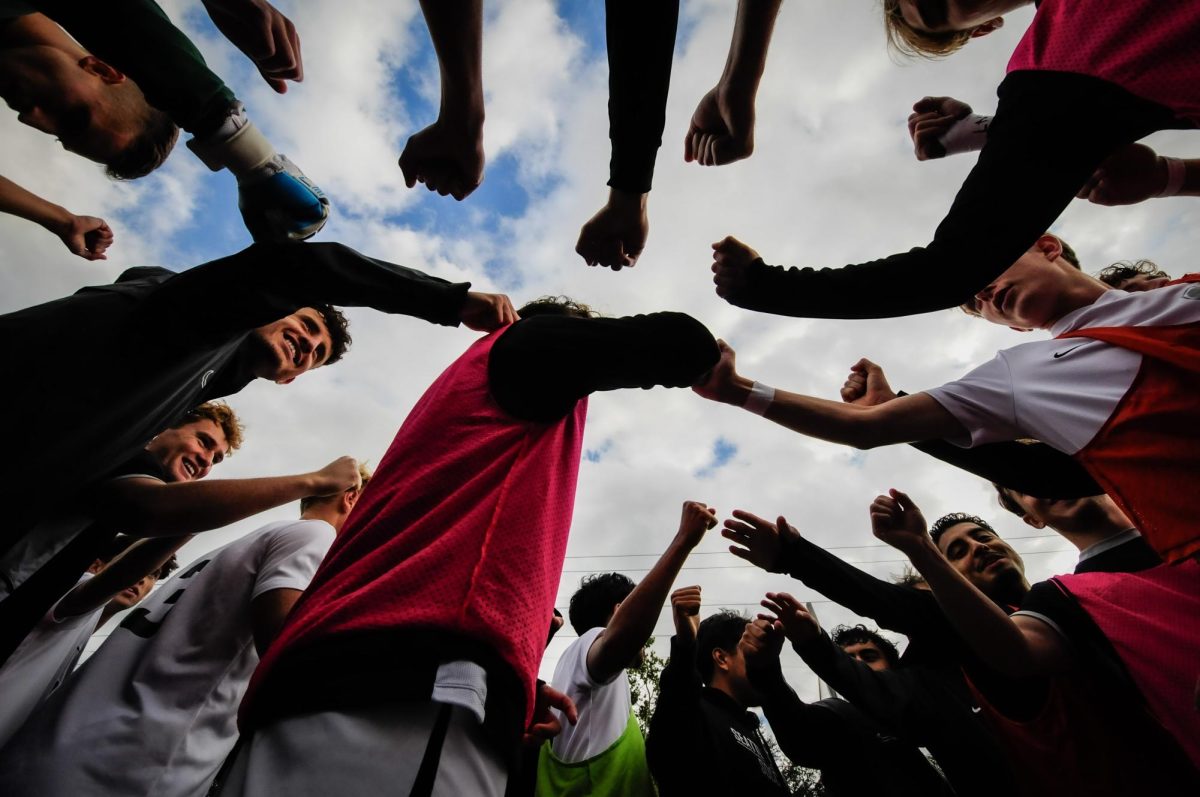Lunar New Year celebration encourages engagement between international and domestic students
Students gather in the Student Union Building Gazebo Room. Having just finished their presentation, the event hosts call on three volunteers to come to the front of the group and hold out their hands. Student leaders then carefully placed a thin, circular sheet of dough in each outstretched palm.
Simple instructions are detailed, however this is an art that can only truly be learned through experience.
It’s time to make some dumplings.
Symbolizing longevity and wealth, dumplings are just one of the many rich foods that contribute to the cherished traditions of the Chinese Lunar New Year.
Bringing a taste of their favorite festivities to the Seattle Pacific University campus, three clubs united last week to kick-off the celebration that lasts from Feb. 5 through Feb. 19.
This year, the International Students Club and the Chinese Culture and Language Club joined with the Asian American Christian Fellowship to host a party for students to learn about Lunar New Year traditions and participate in welcoming the Year of the Pig.
During Lunar New Year celebrations, Chinese families often take up to a month’s time off of work and school to simply be together, sharing food, gifts and stories.
Hoping this sense of community will expand to include more than just Chinese students, the hosts of last week’s party strive to bridge the disconnect between international and domestic students at SPU.
“I was a little bit shy when I first came to SPU,” explained Yvoney Cao, president of the International Students Club. “There is a language barrier — English is my second language — so sometimes I was afraid to talk to others, I was afraid to make mistakes.”
As an international student from China, Cao personally understands the importance of finding community at a new school and, especially, in a different country.
“I think lots of students have a similar start as mine so I would really encourage American students to talk with international students.”
Open to all students, the New Years event was one of the clubs’ annual efforts to make this happen.
The night began with a presentation that highlighted the different traditional elements of the Lunar New Year or, as it is often referred to in mainland China, the Spring Festival.
After learning about the history of these practices, students had the opportunity to take part in some of these traditions, including paper cutting and, of course, dumpling making.
In addition to dumplings, the party was also catered by Panda Express, something that Cao thinks was an easy way to attract students.
“I feel like most people like Chinese food, so it’s a good time to have them try some food and activities,” noted Cao, who expressed that this holiday is a great way for domestic students to become introduced to Chinese culture and engage with Chinese students.
“Chinese Lunar New Year is the biggest event in China so it’s super important because there are lots of people, even some Americans, who are interested in Chinese culture so I think it’s the first step.”
Although there were not many domestic students in attendance, Ches-Mun Tan was happy nonetheless to see that community was being built.
As vice president of the International Students Club, and a Malaysian International student herself, Tan is committed to “help[ing] foster the community for new international students.”
Tan was also very enthusiastic to share the stories she learned from her family regarding the assignment of an animal to each new year.
Laughing as she called upon her memory of the legend, Cao recounted the race between all of the animals to win a place in the Chinese calendar.
“It’s a story that we always tell younger kids about Chinese New Year.”
At the end of the event, each student was given an ornate red envelope containing a quarter.
This is the tradition of hóngbāo, as it is called in Mandarin, wherein married or older family members give the younger ones money as a holiday gift.
With this gift, students left the party with either new knowledge regarding the Chinese Lunar New Year, or the comfort of home that comes from celebrating the holiday with a new, SPU family.
Although Tan is a senior, she foresees a future in which the international clubs and domestic clubs work together to unite the different groups represented in the SPU student body.
“[If] we can have more collaboration between each other it would be much more fun.”














































































